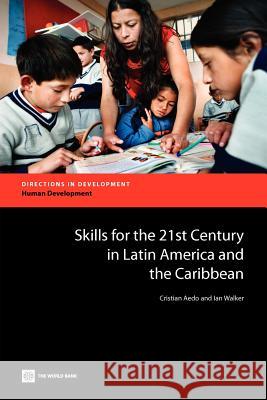Skills for the 21st Century in Latin America and the Caribbean » książka
Skills for the 21st Century in Latin America and the Caribbean
ISBN-13: 9780821389713 / Angielski / Miękka / 2012 / 142 str.
This report contributes to the debate about the quality of education and returns to education investment in Latin America and the Caribbean (LCR). It aims to improve our understanding of the links from investment in education and training to labor market outcomes and to provide a basis for policy choices that will strengthen future outcomes. The report is organized in four main chapters. Chapter 2 documents the recent downturn in education earnings premia using standard 'mincerian' regressions based on household survey data. Chapter 3 explores the underlying supply-side and demand-side drivers of the trends in premia. It documents the recent expansion of education coverage in LCR, benchmarks it against other regions, and presents an in-depth analysis of the relative importance of shifts in the supply and demand for skills in generating declining earnings premia. Using a methodological approach first developed by Katz and Murphy, it concludes that demand-side changes appear to be the critical factor. It also analyzes the role of institutional factors, finding that minimum wages also have likely played an important role in the compression of labor earnings. Chapter 4 focuses on trends in student achievement and the cost-effectiveness of secondary education. It analyzes trends data from the OECDs PISA survey of 15-year-old children in secondary education which covered nine LCR countries in 2009. It shows that achievement is improving slowly, but remains well behind the OECD. It presents benchmarking evidence suggesting that LCR may be both under-resourcing secondary education and also getting poor returns per dollar invested -- a classic low-quality equilibrium. Chapter 5 presents evidence on the fit between the skill set of LCR workers and the needs of the economy, applying an approach first developed by Levy and Murnane in the U.S.A. Analysis of the industrial composition of employment in four countries suggests that LCR is lagging in those industries that require relatively sophisticated 'new economy" skills in the U.S.A. Further evidence that cutting-edge firms in LCR might be facing skill constraints comes from the hiring lags registered in enterprise surveys.











